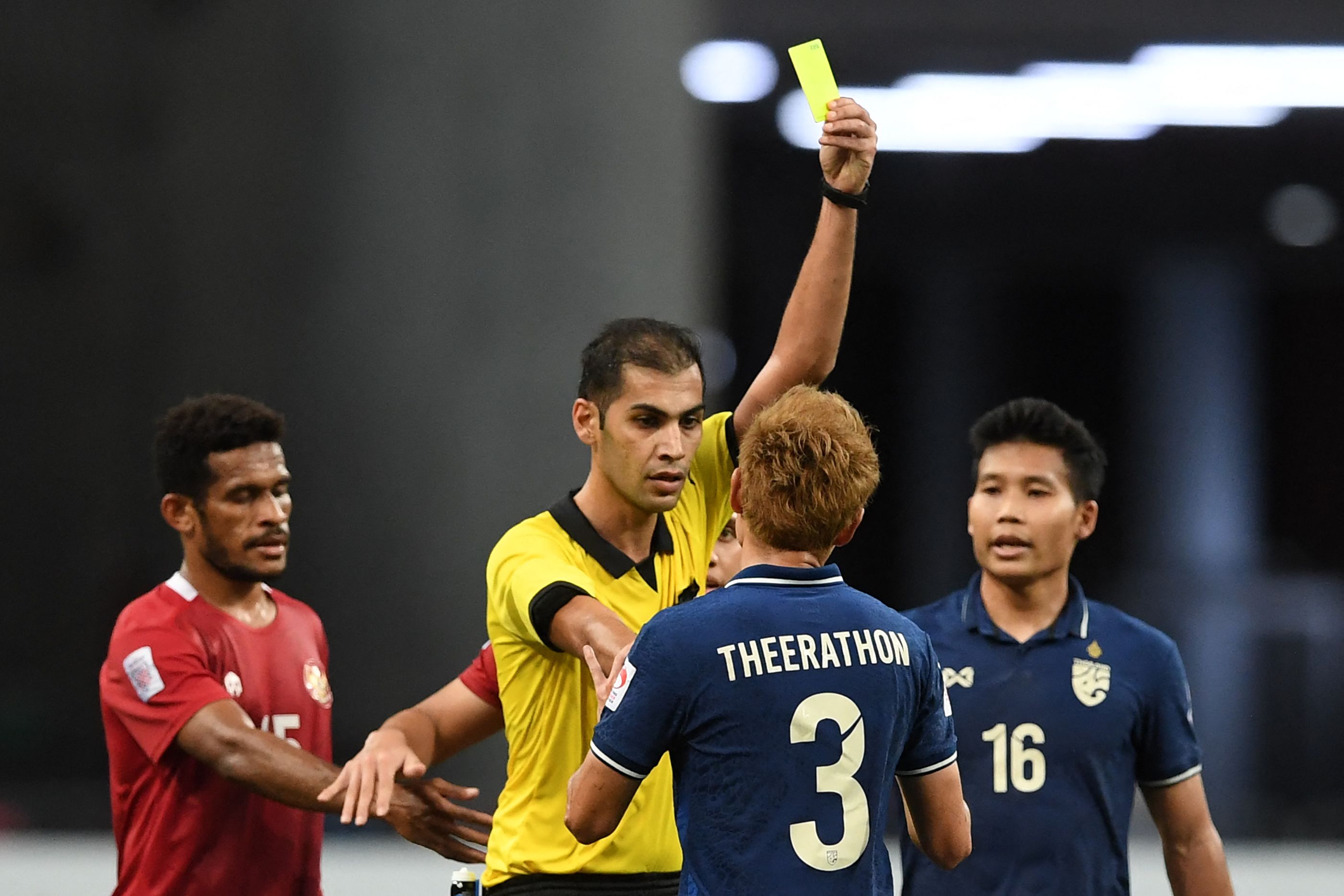Football: More can be done to raise refereeing levels, says former Fifa referee
Sign up now: Get ST's newsletters delivered to your inbox

The FAS could also look at widening its database to provide a more in-depth assessment of a referee's performance.
PHOTO: AFP
Follow topic:
SINGAPORE - While many in the local football fraternity are in favour of implementing the video assistant referee (VAR) technology in the Singapore Premier League (SPL), more can be done in the interim to raise the standard of refereeing, said a Singaporean former Fifa referee with 20 years of experience.
The official, who declined to be named, offered some suggestions for the SPL.
1. Increase the pool of referees
VAR involves a separate team of officials in an operation room to monitor proceedings, which increases the manpower required.
There are currently 33 referees listed on the Football Association of Singapore's (FAS) website, with 12 Fifa-level referees - a dip from 15 in 2017. As they are part-timers, not all of them are readily available and only one is VAR-trained.
The former referee said: "If there are only just enough referees to go around, even if they don't perform, they will still get games to officiate. But if there is more competition, it will be the ones who perform who will get more games." Noting that the Asian Football Confederation Champions League pays an allowance of around US$300 (S$409) per match, he felt the SPL allowance can be increased from its current rate of about $200 to attract more people.
He said: "Some may say it is already a lot, but people don't see the hard work that goes behind it. We do this out of passion, and even if we are not professional referees, our mindset has to be. Most of us have day jobs and we have to run late at night or early in the morning to keep in shape, and this takes time and effort beyond the 90 minutes."
2. Enhance tracking capabilities
The FAS could also look at widening its database to provide a more in-depth assessment of a referee's performance.
The former referee said: "As far as I know, the data available now is quite basic. It would help to track things like distance covered and number of sprints made, just like top clubs do for players.
"Such information will allow the referees department and referees themselves to understand more about their performance, see what their strengths and weaknesses are and hopefully motivate them to improve."
3. Go back to basics
Referees have to make correct split-second decisions, and focus and communication are key.
The former referee said: "It is not like referees don't know what constitutes offside.
"But when there is an incident like the disallowed Tampines goal, the assistant must quickly assess if the player was interfering with play, and if there is any doubt, the referees should consult one another, which I feel was lacking."

